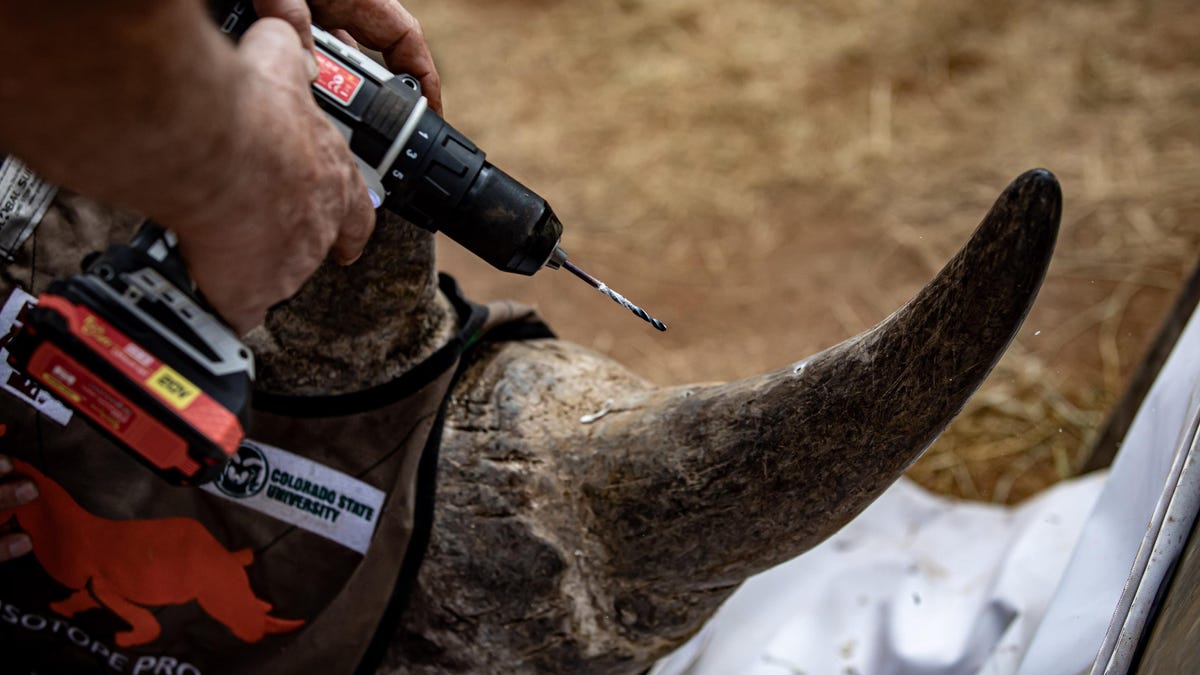
Scientists in South Africa are now injecting the horns of live rhinos with non-toxic radioactive isotopes to make the horns unfit for human consumption and allow for easier tracking at international border crossings, according to a press release from the University of the Witwatersrand in Johannesburg.
Launched on Tuesday by the university’s Radiation and Health Physics Unit (RHPU), the program has been in the works for several years as a way to fight back against poachers who sell the horns, which are often smuggled out of the country and used as alternative medicine therapies.
Humorously dubbed the Rhisotope Project, low doses of radioisotopes are being drilled into the horns of 20 sedated rhinos, whose health will be monitored for the next six months. If successful, the program could be expanded to include elephants and pangolins, as well other plants and animals, according to the university.
Consuming products made from the horns will make them “essentially poisonous for human consumption,” as one of the researchers told France’s AFP, but the primary goal is actually to identify the smuggling efforts before they even leave the country.
Most major airports and harbors, including those in South Africa, already have the infrastructure to detect radioactive material, an effort to protect them from nuclear weapons. Theoretically, anyone trying to smuggle these now-radioactive horns would set off the alarms and instigate a very serious police response. But the scientists are quick to point out that the process isn’t harmful to the animals.
“Each insertion was closely monitored by expert veterinarians and extreme care was taken to prevent any harm to the animals,” Professor James Larkin who’s leading the project, said in a press release. “Over months of research and testing we have also ensured that the inserted radioisotopes hold no health or any other risk for the animals or those who care for them.”
Witwatersrand posted a video to YouTube showing the novel process the university’s team has undertaken to fight back against poaching.
“Every 20 hours in South Africa a rhino dies for its horn,” Larkin said. “These poached horns are then trafficked across the world and used for traditional medicines, or as status symbols. This has led to their horns currently being the most valuable false commodity in the black-market trade, with a higher value even than gold, platinum, diamonds and cocaine.”
The International Rhino Foundation reports that 499 rhinos were killed in South Africa in 2023, an 11% decrease from 2022. There are an estimated 16,800 white rhinos and 6,500 black rhinos left in the entire world. South Africa alone has roughly 80% of the world’s white rhinos and about 30% of the world’s black rhinos.




